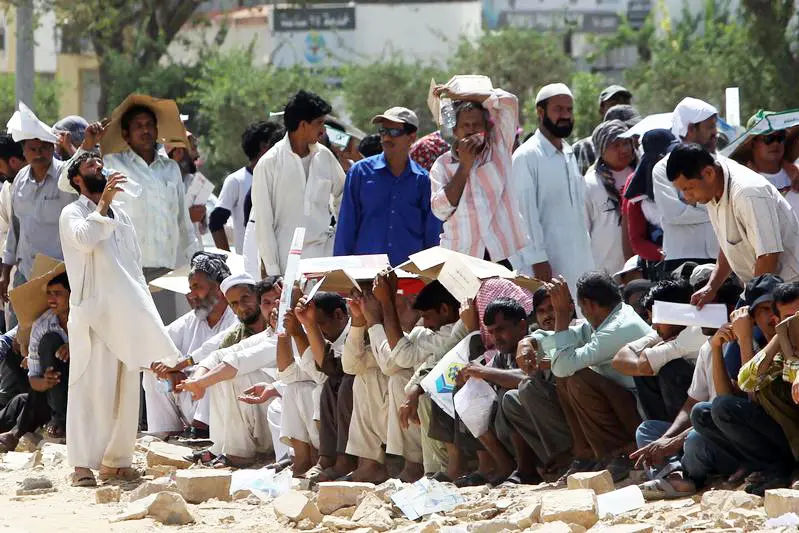PHOTO
Saudi Arabia has intensified its efforts since last year to combat expatriate workers violating residence regulations.
The widespread phenomenon has negative effects on the economy, security and social aspects of life in the Kingdom.
The laws of residence and sponsorship are explicit and operate within a mechanism that aims to protect the community, security and economy from violators, without limitation to a certain nationality. That is why we will be elaborating on the most important bases of regular dealing with these violators, especially after the completion of the corrective period.
The labor market is one of the major components of every economy, and the Kingdom has endeavored in its historical vision to raise the Saudization rate and to empower Saudi youth in all professions and industries. We currently witness the bitter reality of covering up a huge number of expatriate workers and appointing citizens on paper to achieve this mandatory percentage.
The rules for dealing with expatriates who violate the laws already exist. Several important points include the non-permissibility of allowing the worker to work separately or for others by his employer. Unfortunately this problem has been greatly exacerbated, especially when the original employer gets a percentage from his employee as a price for this freedom.
To ensure the implementation of such rules, the Ministry of Labor and Social Development undertakes the task of inspecting establishments and investigating violations, and then forwarding them to the Ministry of the Interior to implement the penalties.
The Ministry of the Interior has the widest powers in these checks. In addition, it also punishes those who were reported missing, those who are late leaving the Kingdom, especially those who have come on visas (Hajj, Umrah, tourism, treatment, transit, and infiltrators arrested outside the Haram border area, and those responsible for their employment and concealment).
With regard to the deportation of the violator, the offender departs at the expense of the employer, but if he was considered absent and his employer has reported on time, he will be deported at the expense of the person who employed him. If the offender works for himself he will be responsible for these expenses, and the state will bear the expenses if he cannot afford it. The necessary and sufficient funds will be collected in an account allocated for this purpose.
Fines are issued by the Directorate of Passports in respect of irregular workers, employers and the those who cover them, where the financial penalty for the violator himself starts from SR15,000 ($4,000) for the first time and rises to SR50,000 in the case of repetition for a third time, in addition to imprisonment for one to six months and deportation. As for the intruders, their fines vary according to the times of repetition and start from SR25,000 to SR100,000 for the third time, as well as imprisonment between one and six months and deportation.
As for operators and persons involved in the concealment, the fines imposed on them start from SR25,000 for the first time and rise to SR100,000 in the case of repetition for the third time, along with imprisonment from six months to two years when the offense is repeated three times. The term “involved persons” includes homeowners when employing offenders as domestic workers.
Responsibility is not limited to the security authorities. The system requires companies and Hajj and Umrah institutions to inform the competent authority of the delay of any pilgrim from leaving after the expiry of the period specified for his stay or his absence for more than five days. This applies to expatriates who were also brought to the Kingdom, since non-reporting is considered a cover-up from the person who brought them in.
This is not a racist policy or a surveillance issue, but rather a series of measures to ensure the building of an independent, sound and secure society.
Dimah Talal Alsharif is a Saudi legal consultant, head of the health law department at the law firm of Majed Garoub and a member of the International Association of Lawyers.
Disclaimer: Views expressed by writers in this section are their own and do not necessarily reflect Arab News' point-of-view
Copyright: Arab News © 2019 All rights reserved. Provided by SyndiGate Media Inc. (Syndigate.info).





















